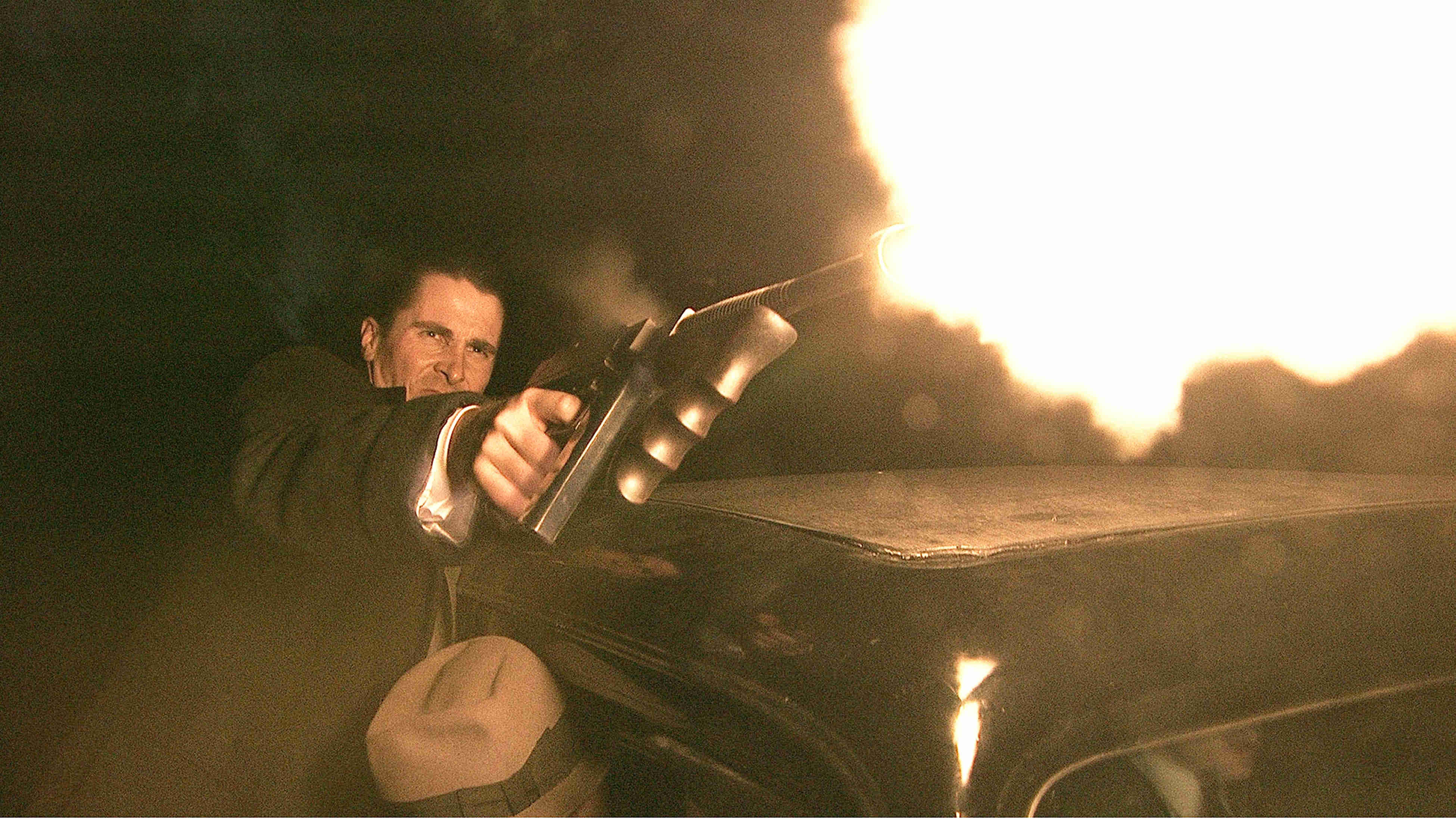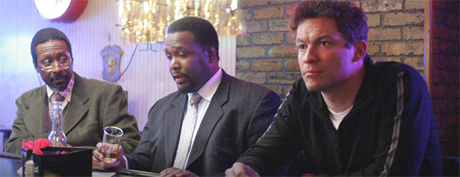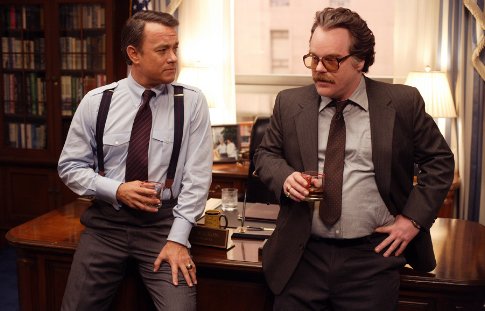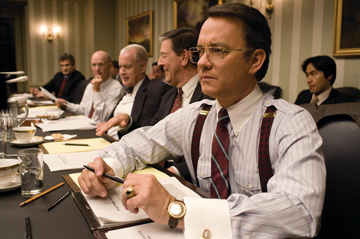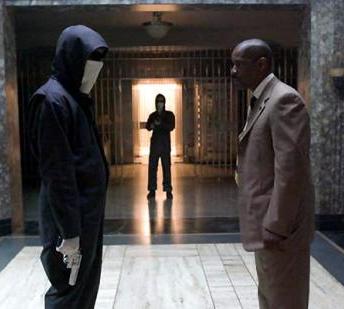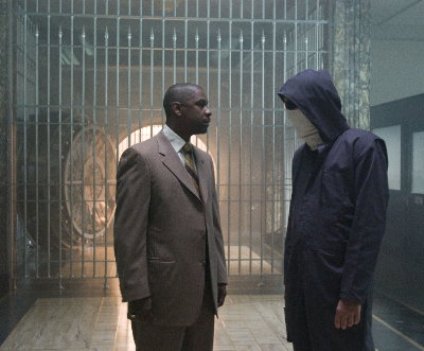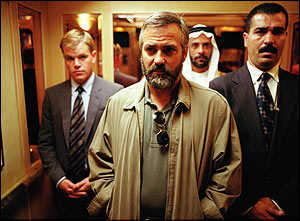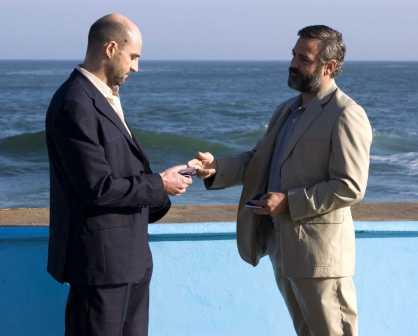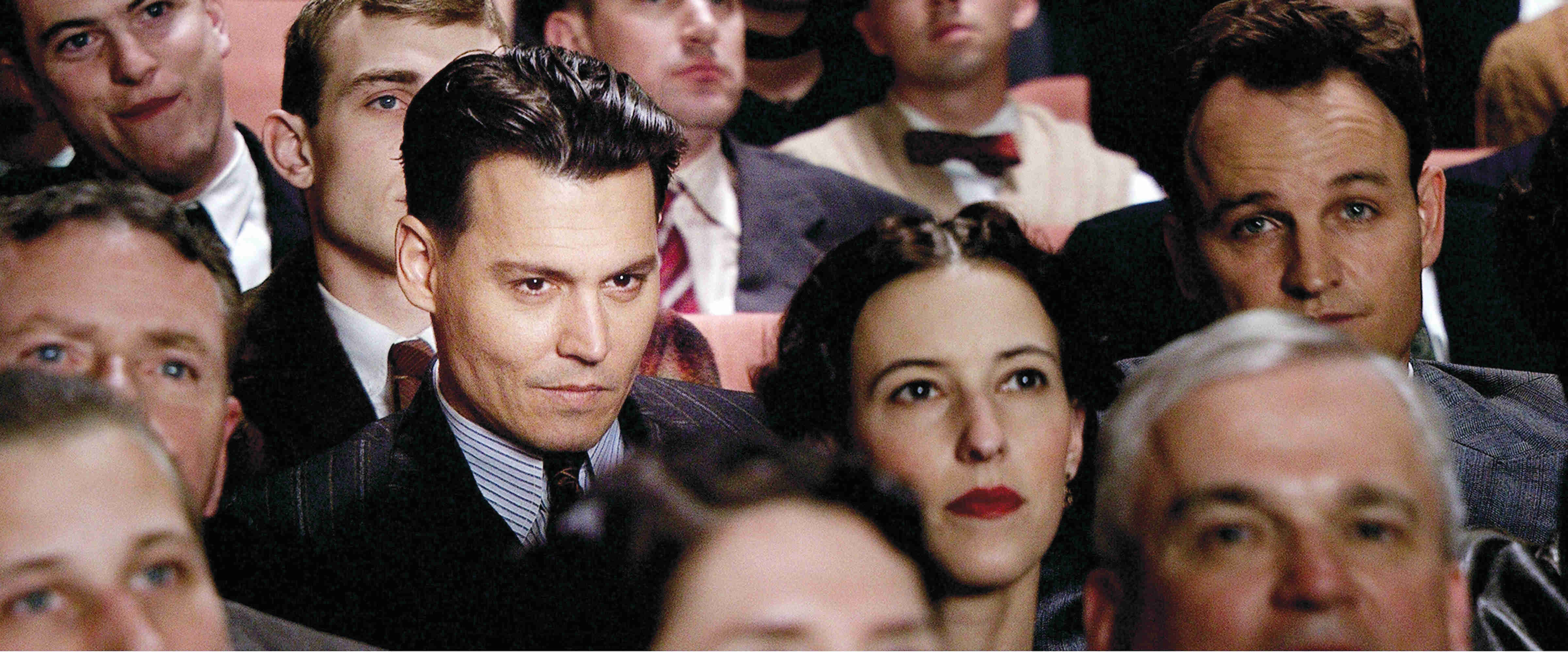
In Public Enemies, Michael Mann’s strange and striking naturalistic recounting of the last year in the life of John Dillinger, you can catch glimpses of several other movies Mann has made over the years. Most obviously, the film’s basic plot is much like that of Heat with Johnny Depp and Christian Bale taking the bank-robber (DeNiro) and crusading-cop (Pacino) roles respectively — Here Depp is Dillinger, the charismatic Depression-era outlaw whose string of notorious bank jobs unwittingly help to forge modern techniques of law enforcement, and Bale is Melvin Purvis, the stalwart, if somewhat plodding, lawman who leads the effort to bring him to justice. And Enemies also shares the hyperreal hi-def aesthetic and in media res “just another day in the life” presentation of Collateral and Miami Vice, which is particularly impressive given that this one takes place in 1933.
But what I found most interesting in Public Enemies were the parallels to probably my favorite Mann film, Last of the Mohicans. Both are tales of American history, of course, and both involve unbounded loners — Mann-ly men beholden to no one but themselves — who find their priorities and “no-strings” life philosophy challenged once they meet that certain special woman, be it Cora Munro (Madeleine Stowe) or Billie Frechette (Marion Cotillard). (Now that I think about it, that same dynamic holds for the DeNiro (Amy Brenneman) and Colin Farrell (Gong Li) characters, and to a lesser extent even those of Val Kilmer (Ashley Judd) and Jamie Foxx (Naomi Harris), in Heat and Miami Vice respectively.)
But, even beyond that, Public Enemies is, like Last of the Mohicans, mainly about the demise of a certain type of freewheeling individual, a man who cannot continue to exist under the tenets of the New World Order being born at that very moment. In this case, it’s not the armies of Europe, and the mores and treaties of “civilization” that they carry with them, that are ratcheting up the pressure. Rather, it’s the swiftly emerging enforcement arm of Big Guvmint, and the corresponding reaction by Organized Crime, as personified here by Capone underboss Frank Nitti, that are hemming our (anti-)hero in. (While I don’t think he ended up being that successful at it, Martin Scorsese seemed to be going for much the same idea at the close of Gangs of New York, when the arrival of the Union army from Gettysburg basically makes the gang war brewing all movie irrelevant. There’s a new boss in town, and it’s called the U.S.A.)
As such, when you think about it, Mann and Depp’s John Dillinger is not unlike Hawkeye (Daniel Day-Lewis) from Mohicans. In fact, he’s what you might call the Last of the Honest Bank Robbers. It used to be a fella in trouble with the law could just jump the state line and find respite over in, say, Ken-tuck-ee. But that’s not how it’s plays anymore, not after J. Edgar Hoover (Billy Crudup) gets through fashioning a brutally effective and fully federal law enforcement system to hunt down Dillinger and his cohort of “Public Enemies.” (Yep, in his own way Crudup is as much of a paradigm-changer here as he was in Watchmen. Instead of heralding the Atom, he’s now the harbinger of Federal Power. Either way, the new age he represents makes the old ways of doing business irrelevant.)
Just to help get this point across, Mann has Bale’s Melvin Purvis shoot gangster Pretty Boy Floyd (Channing Tatum, blink-and-you-miss-him) dead early in the first reel. Best remembered from the Woody Guthrie social protest ballad (“Some will rob you with a six-gun, and some with a fountain pen“), “Pretty Boy” Floyd is another member of the same dying breed, so of course he’s brought low by Hoover’s G-men right away in this telling. The new Federal state has no use for charismatic outlaws, even if they are rumored occasionally to dole out “a whole car load of groceries” to “the families on relief.” (Why is this telling of Mann’s purpose? Well, mainly because it’s blatantly wrong. Floyd, like fellow outlaws “Baby Face” Nelson (Stephen Graham) and Homer Van Meter (Stephen Dorff) actually all outlived Dillinger, which, frankly, are some rather large liberties to play with a supposedly true story.)
Anyway, if the last few paragraphs have seemed more unmoored and stream-of-consciousness than a lot of the reviews around here, well, so is the movie. Public Enemies is a strange bird, an alternately compelling and occasionally lumbering biopic that moves to a beat of its own. In the end, I’d definitely recommend the film, if nothing else than for its hi-def visual flair, occasional moments of real grace, and documentary recreation of the thirties. But particularly in the film’s first hour, it’s sometimes hard to get a grasp on what exactly is going on. (Our couple runs into some trouble at the track, for example, which seemingly comes out of the blue if you weren’t already familiar with the contours of Dillinger’s story.) And eminently recognizable faces — Giovanni Ribisi, Lili Taylor, David Wenham, Emilie de Ravin, Leelee Sobieski, Herc and Judge Phelan of The Wire — often flit in and out without introduction, such that it sometimes becomes hard to keep track of who’s important and who’s not.
Still, I’d almost always be challenged by a movie by being given too little information rather than have it overexplain everything. I expect some people will find Public Enemies maddening (and others maddeningly dull), but it’s undoubtedly pure, undiluted Michael Mann. And — like Billie — I’m glad I took this ride.
